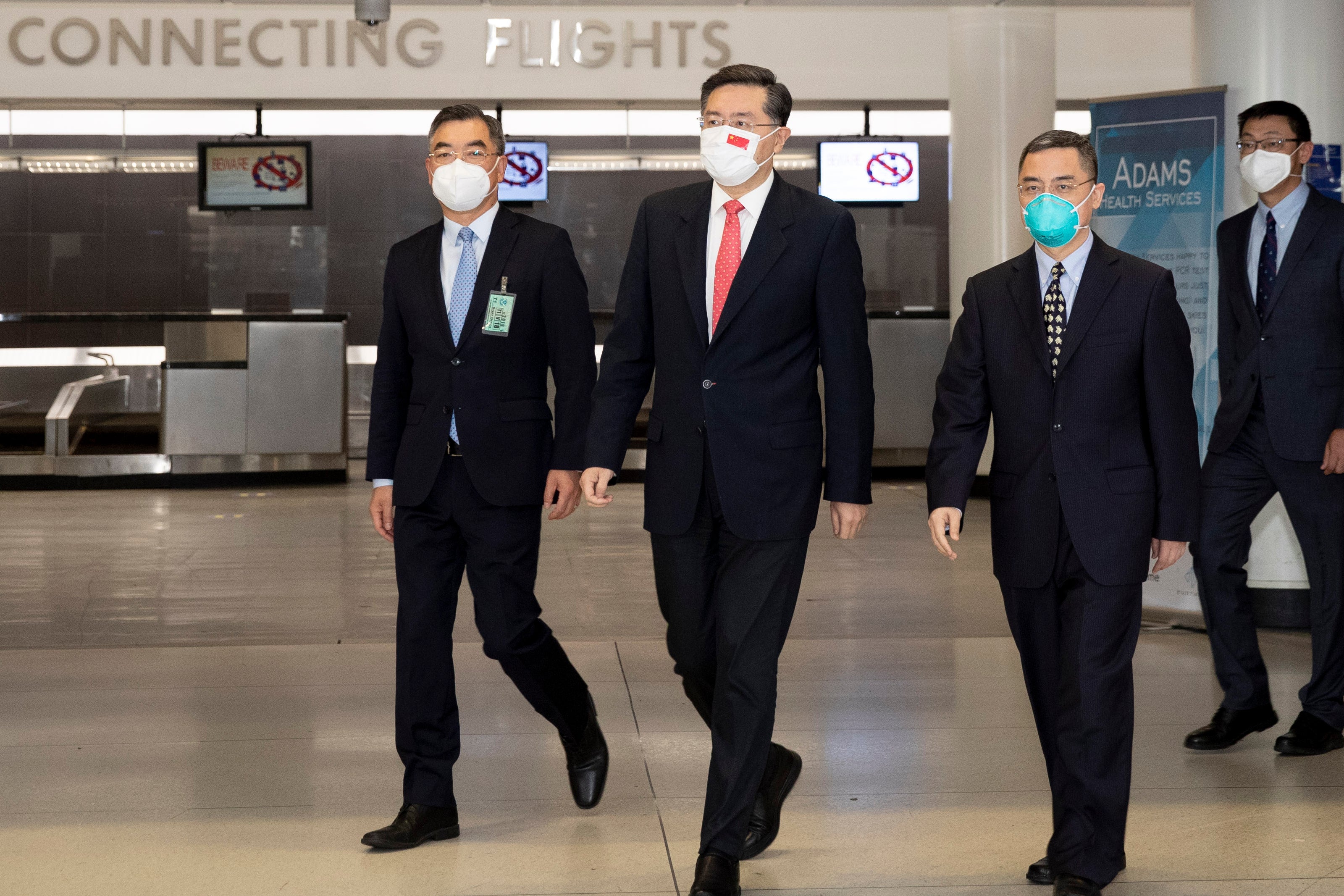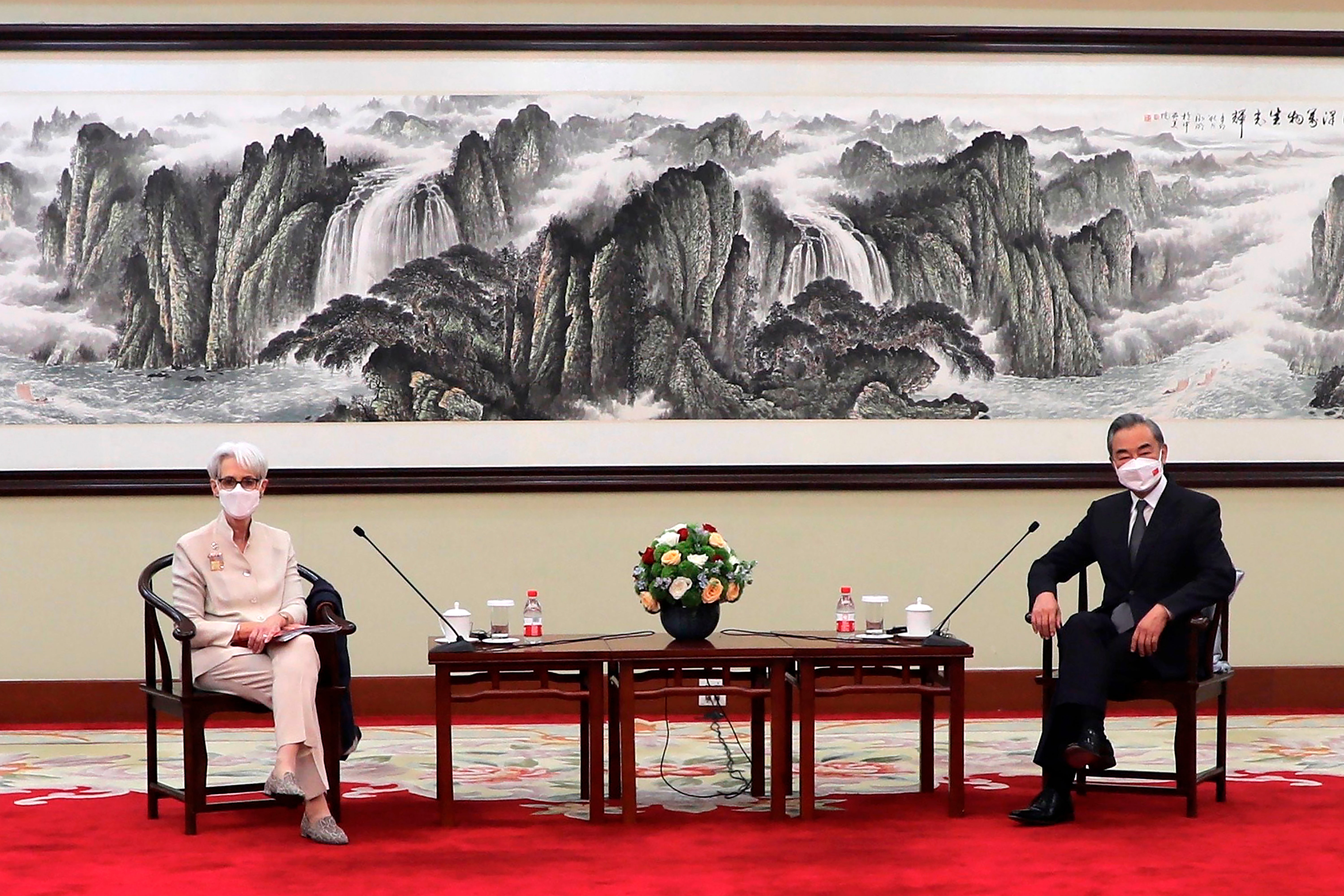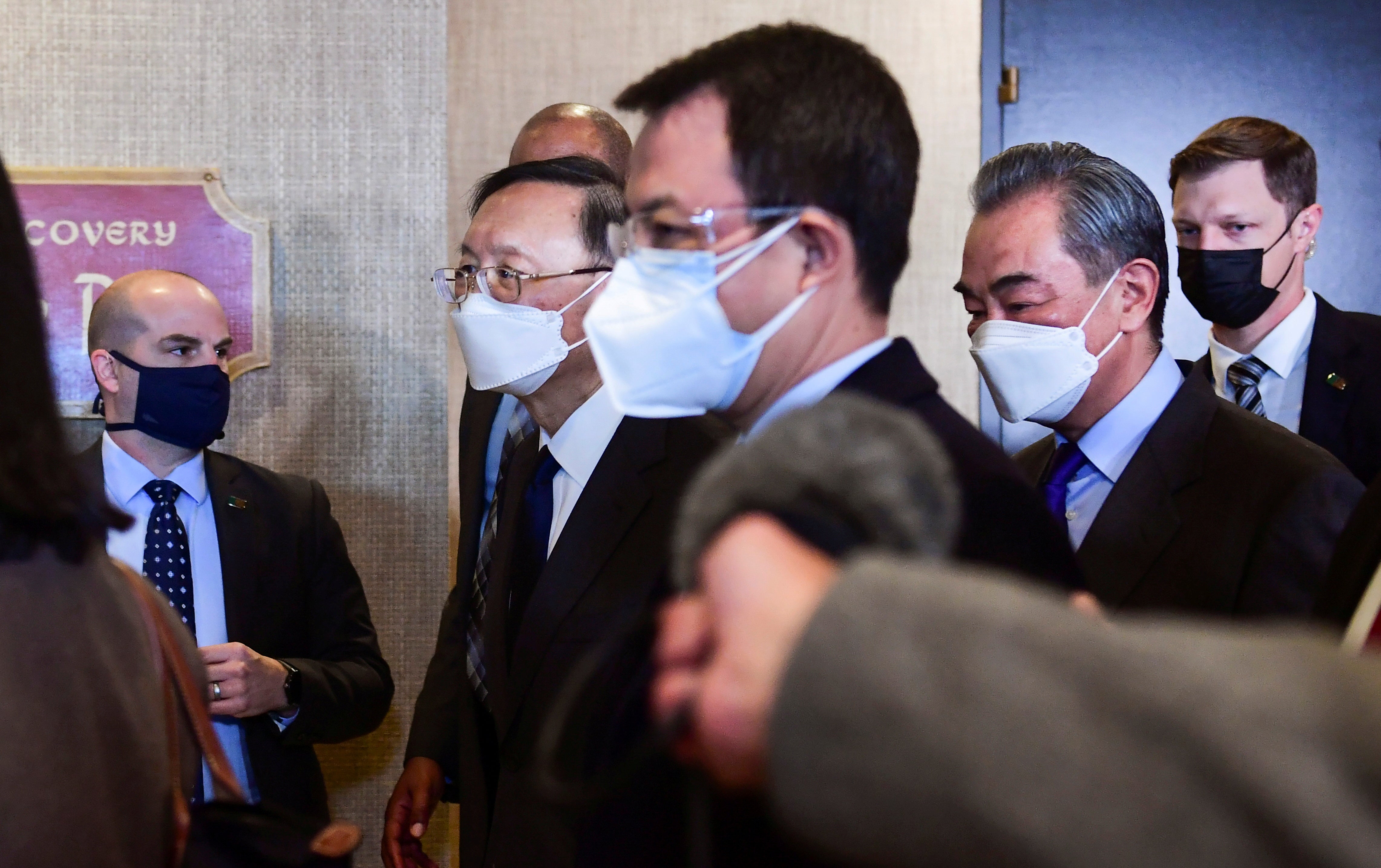Xi’s man in Washington: How new Chinese ambassador is expected to mirror his boss’s views of US
As a close and trusted aide to Xi, Qin Gang will implement his boss’s vision with no room for manoeuvre, writes William Yang in Taipei and Ahmed Aboudouh in London

Last week, as the new Chinese ambassador to Washington touched down on US soil, a subtle shift was underway in Sino-American relations.
It was a tale of two officials pushing reconciliatory rhetoric of cooperation, coexistence and adaptation. Competition, though, still dominated the uneasy interactions behind a well-staged, stilted diplomatic reciprocity.
As the highest ranking US official to visit China since President Biden took office, US Deputy Secretary of State Wendy Sherman made it very clear that the US did “not seek conflict” with China. Her visit to Tianjin in the north of China aimed to convey that the Biden administration’s policy is mindful of the importance of “guardrails” to ensure competition doesn’t veer into conflict between the two countries.
Days later, the new Chinese ambassador to the US, Qin Gang, arrived in Washington to take over from his respected, measured predecessor Cui Tiankai after eight years in the position.
Qin, 55, tried to project the image of a traditional Chinese statesman in the eyes of his hosts, with his deep voice, slow and clear talk and well-dyed dark hair. In his first statements in the US, he delivered a conciliatory message to the American people, stating that “the door of US-China relations, which is already open, cannot and should not be closed.”
This struck a somewhat different note to recent tensions in bilateral relations as well as the acrimonious meeting between top Chinese and American diplomats in Alaska earlier this year. The Chinese officials’ finger wrangling and hawkish attitude in that March meeting reflected a bullish foreign policy, widely supported by the rank and file of the communist party.

However, Qin, an adept diplomat, is known to be calmer and well-respected in Beijing circles. While he is not known to be as confrontational as the wolf-warrior diplomats that have been dominating headlines of international coverage of China over the last few years, experts still view him as a loyal supporter of the Chinese Communist Party and its authority to rule China.
“For many in China, the ability to impress the audience of one (President Xi Jinping) is more important than convincing an international audience or conveying political narratives,” Dr Andreas Fulda, China expert at the University of Nottingham, said.
“Even though he is not as tough as the wolf-warrior diplomats from China, Qin Gang will still try his best to defend all the policies rolled out by Beijing,” said Teng Biao, a Chinese legal scholar and the Pozen visiting professor at the University of Chicago.
Major Chinese media outlets showed up in force to film Qin’s debut conference in Washington. And he saw an opportunity to declare his loyalty to the philosophy of his boss – President Xi.
Qin stressed that: “Today, the world is going through major changes unseen in a century,” a line reflecting one of Xi’s remarkable thoughts on the drives that shape the current nature of the US-China relations.
This could partly explain why Qin ended up in Washington. As a career diplomat, he has, perhaps counter-intuitively, served three stints in the Chinese embassy in London throughout the past quarter-century. His most recent posting was in 2010 and 2011, as former British PM David Cameron called for a “greater political opening” and respect for human rights in China” - whilst taking a softer line in practice. Qin later became a two-time spokesperson of the Chinese foreign affairs ministry, where he attracted the world’s attention with his sharp rebukes in response to criticism of China.
“Unlike the Chinese diplomats that came before him, who were willing to establish a friendly relationship with foreign correspondents in China, Qin wasn’t interested in establishing a rapport with correspondents based in Beijing,” said Dexter Roberts, who was a foreign correspondent in China for more than two decades, beginning in the 1990s.
In 2018, Qin was appointed assistant minister and general director of the protocol department. This made him a very close, trusted aide to Mr Xi. He was responsible for arranging almost all his diplomatic events and accompanied the leader on many overseas trips.
For his long service in London, Qin has been considered an expert on British affairs and oversaw European matters as assistant minister
For his long service in London, Qin has been considered an expert on British affairs and oversaw European matters as assistant minister. By contrast, Zheng Zeguang, who took the position of ambassador in London in June, was widely seen as a US hand in Beijing.
Shi Yinhong, an expert of international relations at China’s Renmin University, says Qin Gang doesn’t seem to be the best candidate for the role of the Chinese ambassador to the US, and there may be some other consideration from Beijing for designating him to the position. “Amid the serious confrontation between the US and China, a Chinese ambassador to the US could do little to change the situation,” he told the Independent.
The irony in sending Qin to Washington and Zheng to London suggests Qin’s appointment is an indication that Mr Xi is directly taking matters around the US-China relations into his own hands.
And as a leader who adopted a more assertive foreign policy since he took power in 2013, there are signs Xi Jinping may want to make his mark with regard to Sino-US diplomatic relations.
Some experts suggest China would not send an ambassador that Mr Xi did not believe could effectively and successfully represent Chinese interests in the US.
“Qin will need to walk a fine line between defending China’s interests and not further alienating the United States,” Taylor Fravel, China expert and Director of the Security Studies Program at Massachusetts Institute of Technology, said.
“If he is as close to Xi as some suggest, this could perhaps improve communications between the two governments,” he added.
In recent years, Xi has led an aggressive approach to the relations with the US, but simultaneously he oversaw the focus on improving his top aides’ understanding of the US.

“China now has a lot of seasoned and strong US hands in senior levels of the CCP – and the US may not be used to that. This comes at a time of a low point in US relations and a high point in terms of nationalist narratives in China and anti-China views across the political spectrum in the US– a difficult combination,” said Nicola Leveringhaus, Assistant Professor of East Asian Security at King’s College London.
The US criticism of China intensified under the administration of former President, Donald Trump. Nevertheless, since Joe Biden became the US President in January, Washington continues to impose sanctions on dozens of Chinese companies while working with other democratic countries to criticize China’s human rights records in Xinjiang and Hong Kong.
China has also imposed sanctions on several former US officials and individuals.
During last week’s meeting with Debuty Secretary Sherman, Chinese Foreign Minister Wang Yi laid out China’s three bottom lines. Beijing asked the US not to challenge, slander or even attempt to “subvert” China’s socialist system. He urged the US not to interrupt China’s development process. China also warned the US not to damage China’s territorial integrity.
“Based on a lot of his comments and behaviours in the past, Qin will do his best to defend China’s stance on issues like Xinjiang, Hong Kong and Taiwan. However, he may also not embrace the wolf-warrior diplomacy that has been adopted by many Chinese diplomats over the last few years, as he might want to avoid causing negative consequences for US-China relations,” Teng said.
During his time in Washington, Cui Tiankai was considered a moderate diplomat and an authority on American affairs. On one occasion, he didn’t hesitate to publicly push back against conspiracy theories by hawkish colleagues that coronavirus came out of a US military lab.
But even Cui didn’t achieve great success in steering the relations away from trouble.
The bilateral relationship now is like a married couple who have resentment towards one another
While Qin will be the highest-ranking Chinese official based in the US, Chinese experts think his main task will be executing the decisions handed down by the central government in Beijing, rather than having any actual influence on the development of US-China relations.
“A veteran in diplomacy toward the US like the former Chinese Ambassador Cui Tiankai could do nothing substantial during his tenure too,” Shi Yinhong said.
“The status of China’s foreign ministry is very low in the CCP’s bureaucratic system, and the ministry doesn’t really have much decision-making power,” Zhang Lifan, a Chinese historian and political commentator, told The Independent.
“The CCP has a tradition of letting ‘outsiders to lead the insiders,’ so if top government officials continue to dictate China’s foreign policies, the international community can’t expect an ambassador to make a real difference in improving the US-China relations,” Zhang added.
The top-down diplomatic approach on China’s part reflects how crucial the relations are with the US in China leadership’s perception. But it also reflects the CCP sees a historic opportunity to overtake the US as the sole great power.
Last month, China’s foreign vice-minister Le Yucheng called on the US to accept that “American hegemony” is in decline while admitting it will take a long time for Beijing to outdo Washington.
Qin’s soft debut in Washington and Sherman’s reassurances in Tianjin may suggest there is still room to defuse tension between the two sides – but ideological, economic and political conflicts will dominate the stage for years to come.
“In the foreseeable future, the relationship between China and the US will continue to move towards conflict and confrontation,” Teng said. “It is a Cold-War-like confrontation that will take place in the economic, technological and ideological sector.”
Zhang Li-fan thinks that even though a significant number of people at Wall Street and among the Chinese elites don’t want the bilateral relationship to keep deteriorating, the current situation is indeed not optimistic in his view. “Although China tries to take a tough stance on the ‘decoupling’ between Washington and Beijing, the bilateral relationship now is like a married couple who have resentment towards one another,” he said.






Join our commenting forum
Join thought-provoking conversations, follow other Independent readers and see their replies
Comments